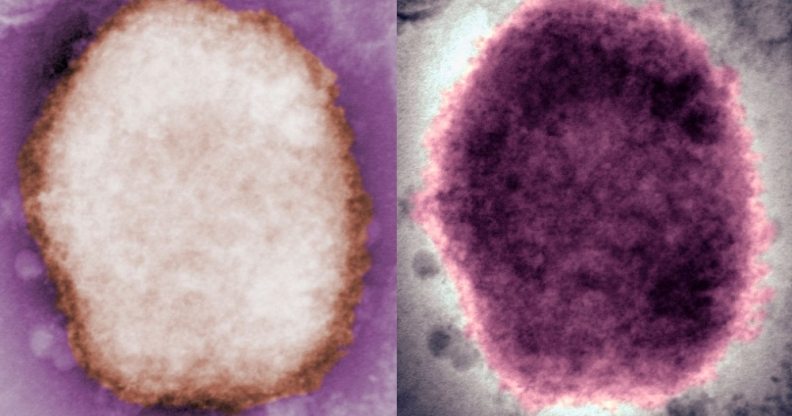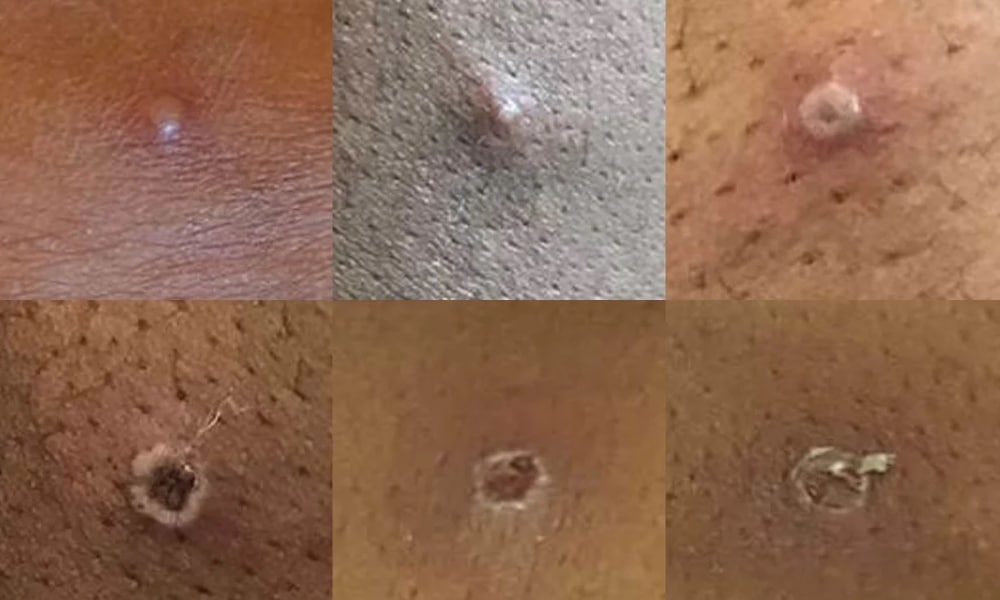Monkeypox: Cases triple as WHO says those diagnosed are ‘mainly, but not exclusively’ queer men

The monkeypox virus under a microscope. (Getty)
There are at least 780 confirmed cases of monkeypox, a rare virus that has now spread to countries where it has never been seen, the World Health Organization (WHO) says.
In a situation update Sunday evening (4 June), the global health agency said that case numbers have tripled to what they were just a week ago outside of Africa.
Laboratory-confirmed cases have been recorded by governments and health agencies in 27 member states across four WHO regions where it is not usually “endemic”.
This means that monkeypox is not typically found in those regions, which includes places like the UK where at least 214 cases have been recorded by the UK Health Security Agency, the most of any nation. Spain and Portugal follow with 156 and 138 respectively.
Cases of monkeypox, once confined mostly to central and west Africa, have also risen in North America in the US and Canada as well as in Mexico and Argentina. The United Arab Emirates recorded its first cases last month, the Ministry of Health and Prevention found.
Within Africa, the continent saw 1,408 suspected cases seen between January and 1 June with just 44 confirmed cases.
Infectious disease experts have been stumped as to why the virus has spread in the first place – testing, they add, is vital at this stage. The WHO said the recent batch of cases were spread beyond known contacts of previously confirmed cases, suggesting that chains of transmission have been “missed through undetected circulation of the virus”.

The stages of monkeypox. (UK Health Security Agency)
“The confirmation of monkeypox in persons who have not travelled to an endemic area is atypical, and even one case of monkeypox in a non-endemic country is considered an outbreak,” WHO said.
WHO said in its update that those diagnosed with the virus are “mainly, but not exclusively, men who have sex with men”. Health experts have stressed, however, that monkeypox is in no way a “gay disease” while the United Nations has condemned media coverage of the spread that officials say is “homophobic and racist”.
The Taliban has even used monkeypox as an “excuse” to harass and detain LGBTQ+ people in Afghanistan, two gay men who live in Kabul previously told PinkNews.
Monkeypox is not sexually transmitted but rather spread through close contact, WHO continued. The body said the risk to the public “remains low” and not a single infected person has died.
Most past cases of the virus, which is a milder version of smallpox, have gone about in the same way. Patients usually start off with a rash that creates flat red marks before becoming raised and filled with pus. Fever and body aches are also expected in the early days of the virus, the NHS says.
Symptoms usually appeared in six to 13 days but sometimes can take as long as three weeks to appear after exposure. Monkeypox usually clears up within a few weeks.
But the new wave of cases has been slightly different. Some infected people have described monkeypox’s well-known pustules as developing before earlier symptoms such as fever, going against what the WHO said is the disease’s “classical clinical picture“.
This all suggests that the monkeypox outbreak isn’t exactly new – it might have been spreading unnoticed by officials for “years”.
“There may have been undetected transmission for a while,” said Dr Rosamund Lewis, the WHO’s technical lead for monkeypox during a briefing 1 June.
“What we don’t know is how long that may have been. We don’t know if it’s weeks, months or possibly a couple of years.”

